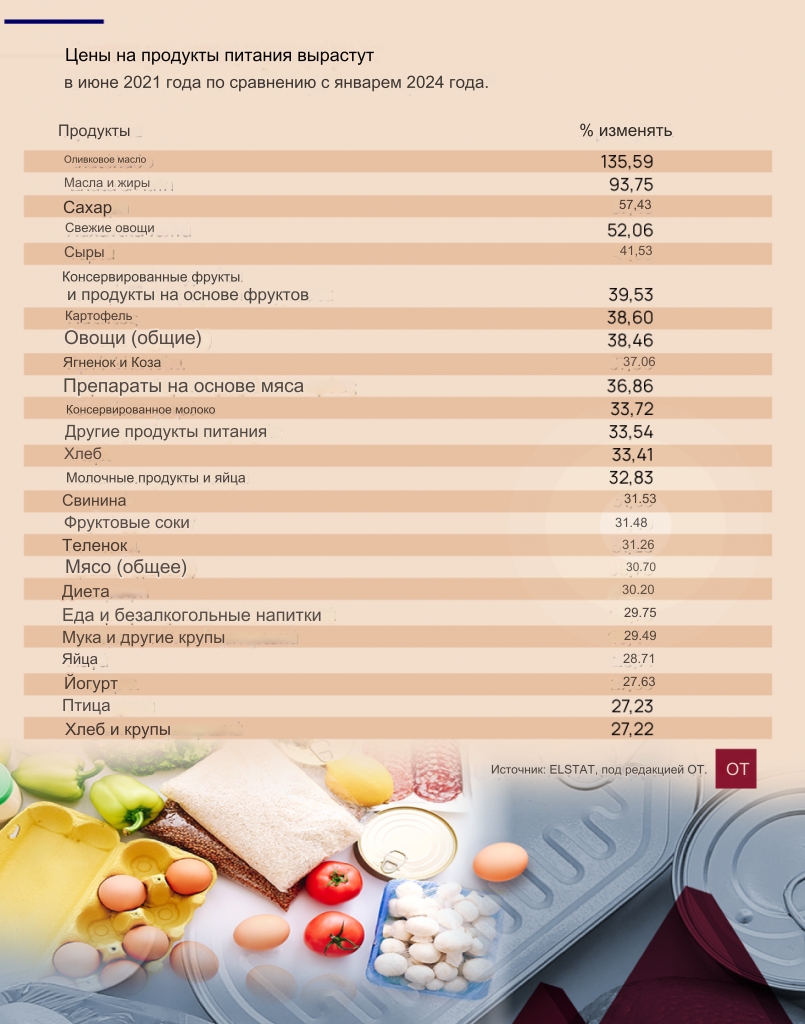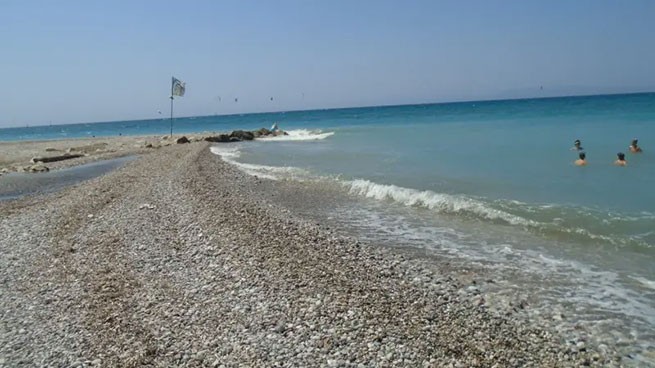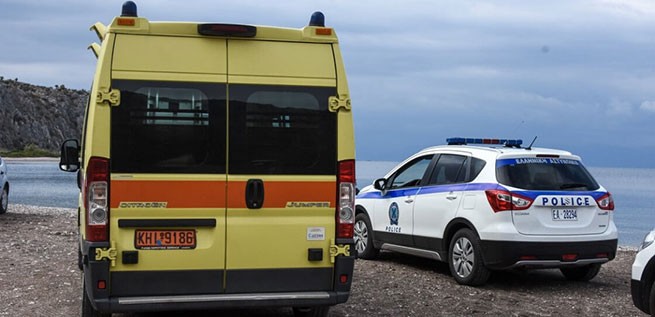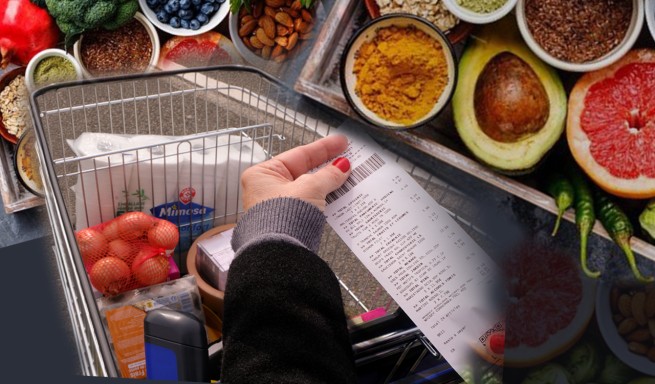Scenarios of escalation of events in the Middle East and instability in the domestic market are strengthening the upward price trend.
Inflation, which has never gone away, is being exacerbated by the risk of further conflict in the Middle East, coupled with domestic destabilizing factors: water shortages, the onset of a plague epidemic in Africa, and budgetary pressures from fires create an explosive cocktail. And although the smoke from the devastating fires in Attica has not yet settled, a new “fire” is blazing, accompanied by rising prices for basic goods.
Stably high container freight rates, delays in deliveries from Asian markets, rising global oil prices (almost 9% in just one week for Brent) and forecasts of rising natural gas prices based on analysts’ macroeconomic models are creating nervousness in the domestic market.
However, beyond the dire scenarios, Consumers have started to see prices rise even before the threat of geopolitical crisis will reach its peak. The cost of a festive meal on August 15, according to experts, has increased by up to 80% compared to Easter. The ban on the movement and slaughter of local goats and sheep, which has been in effect for three weeks, until August 19 with the possibility of extending the quarantine (due to the plague), has led to a sharp rise in prices for imported lambs.
According to a study by the Greek Union of Workers and Consumers, imported lamb from Romania and Spain is currently retailing for between 14 and 16 euros per kilo. At Easter, Greek lamb was sold under the Family Basket program for 10 euros per kilo. In Crete, where lamb is also in demand for weddings, EEKE found that it was sold for up to 18.90 per kilo.
According to EEKE President Apostolos Rautopoulos, the inflated prices are partly due to speculation, not the plague. “They are bought wholesale in Romania for 6-7 euros per kilogram, and at retail the price doubles,” he states. The EEKE President claims that import of lambs from Romania, where the first plague-infected lambs arrivedshould be banned. It refers to the relevant EU regulation, which allows borders to be closed in the event of “imported” zoonotic diseases, and this proposal is also supported by livestock breeders.
Along with lamb, other types of meat have also started to rise in price againas demand rises. This is also reflected in the July inflation data. ELSTAT.
Before the effects of peste des petits ruminants hit the market, beef prices were up 2% from June and pork prices were up 1.5%.
Consumers' concerns about inflation are that the current crisis and the turmoil in international markets over the Middle East will “whet the appetite” of speculators who will find a reason to raise prices again. Greece already has an unpleasant precedent when, in 2022, the year of the highest growth in retail prices, large companies set a world record for profitability – 15.8%, compared to the international average of 10.8%.
«It's not just the crisis in the Middle East. It's the drought, the lack of rain, the lack of food. Many areas have ordered farmers not to irrigate due to lack of water. In Ilia, watermelons have not been harvested and are rotting in the fields. It is not in the interests of producers to harvest them, because wholesalers buy them for 8-15 cents per kilogram, while the costs of growing and harvesting alone are 0.25 euros per kilogram,” says Mr. Ratopoulos.
Because of shortage of local productswhich is fueled to some extent by imbalances in the links of the food chain, is increasing import of fresh produce from abroadcausing “explosive” inflation in our country.

Experts talk about “watermelons from Albania, Kosovo, potatoes from Egypt, melons from Iran, tomatoes from Poland and Turkey,” while the volume of imported peppers has increased by more than 62% over the past year.
Attica's vegetable garden has “shrinked”. The fires in northeastern Attica, which also destroyed crops in Marathon, the basin's “garden,” added a “fly in the ointment.” As Mr. Routopoulos comments, this will obviously further increase inflation.Greenhouses, nurseries, fruit and vegetable growing areas were destroyed.
The affected producers have nothing to sell, let alone collect.
“What will we eat from next month and in winter? Eggplants, tomatoes, dill, parsley? Production from third countries inside and outside EU will grow even more, and with it the prices“, he predicts.
And while food and consumer goods prices are expected to rise again, high prices for energy, fuel and, of course, ferry tickets in August are still high. EEKE insists that this year, the rise in prices for coastal ferries on the main lines will reach 15%citing comparative studies.
As for electricity tariffs, The Union of Working Consumers emphasizes that the August subsidy of 1.6 cents per kilowatt hour does not offset the price increase, which is running at 2.8 cents a month, undermining the government's argument that we will have cheaper electricity than we had in July.
As for fuel, the fact that in the island regions petrol is selling at over 2 euros per litre, with prices recorded at up to 2.35 euros, does not leave much room for optimism due to the “powder keg” in the Middle East and the resulting problems that have hit Europe.







More Stories
Medicines: rising costs for citizens
BRICS and G7: New Energy Race and Struggle for Resources
AADE Prepares Digital Client List for Freelancers – Who Does It Concern?